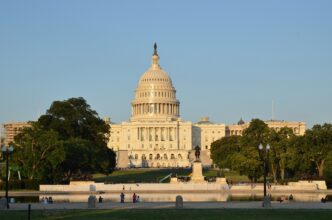The Florida Legislature has reconvened in Tallahassee, marking a significant shift in leadership as they prepare for the upcoming 2025 legislative session. With new leaders at the helm, the agenda focuses on tackling pressing economic issues.
The recent election has ushered in 26 new members into the state House and Senate, with voters prioritizing high living costs as a critical concern. The one-day organization session featured the traditional passing of gavels to new leadership, State Rep. Daniel Perez and State Sen. Ben Albritton. This transition underscores a governmental trifecta, as Republicans continue to hold both legislative chambers and the governorship.
The leaders face the significant task of managing the upcoming fiscal budget amidst warnings from state economists about potential deficits. Florida’s budget has been on a steep incline, expanding by 28.6% over three years. However, the cessation of federal pandemic relief amplifies the urgency for fiscal responsibility. Perez and Albritton, emphasizing prudent spending, have restructured budget deliberations to reflect this philosophy.
Governor Ron DeSantis, despite earlier challenges, remains an influential figure as he fulfills his final terms in office. His recent electoral successes bolster his position, dispelling doubts about his influence following his presidential campaign setback. DeSantis’ ability to maintain a Republican supermajority in the legislature remains a pivotal element in the state’s political dynamics.
Property insurance remains a contentious issue, with lawmakers previously enacting reforms to stabilize the market. Despite these efforts, Florida homeowners continue to face exorbitant insurance rates, exacerbated by recent hurricanes and their associated costs. The situation calls for renewed legislative attention.
In light of the Surfside condo tragedy, regulations have been tightened to ensure the safety and maintenance of condominium structures. While designed to prevent future disasters, these rules have inadvertently increased financial burdens on condo owners, prompting discussions of government intervention for relief.
The state’s water crisis is another pressing concern. Reports indicate an impending water shortage by 2025, necessitating $1.7 billion in critical water projects. Environmental advocates push for the enforcement of existing clean water laws, highlighting the need to address pollution and water consumption effectively.
As Florida’s legislature embarks on a new session under fresh leadership, their ability to address budgetary, insurance, and environmental challenges will be closely scrutinized. These efforts will define the state’s legislative landscape in the coming years.
Source: News-journalonline








